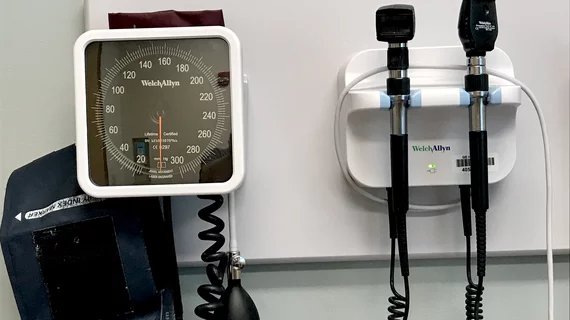CDC-funded program improved cardiovascular health of low-income Nebraska women
A Centers for Disease Control and Prevention (CDC)-supported program to screen low-income, uninsured women and offer them risk reduction counseling and lifestyle interventions improved their blood pressure, diet and physical activity, according to a new study published in the Journal of Public Health Management and Practice.[1] The article showed programs targeting minority groups facing cardiovascular can help overcome health disparities through focused prevention efforts.
In the article, Jianping Daniels, PhD, and colleagues, of the Nebraska Department of Health and Human Services, explain how the WISEWOMAN program implemented in Nebraska offers services for women ages 40–64 who are low-income and uninsured/underinsured. It aims to improve hypertension, blood pressure self-management, diet, physical activity, and body weight. The CDC gave Nebraska $600,000 in funding for the first three years of the program.
The article said the program had 1,312 women (57%) participate in at least one lifestyle intervention, and 66% of that group completed at least three sessions. Overall weight loss was statistically significant, with 19% of all participants losing 2-5 pounds, 12% losing 5.1–10 pounds, and another 12% losing more than 10 pounds. Fruit and vegetable consumption increased from an average of 3.4 to 4.1 servings per day, also a significant improvement.
Daniels and colleagues noted significant improvements in the percentage of participants who:
• Had abnormal blood pressure (26% pre-intervention vs. 19% afterward).
• Were limiting their salt intake (53% vs. 66%).
• Were limiting their intake of sugary drinks (63% vs. 73%).
• Ate fish at least twice a week (21% vs. 26%).
• Ate grains daily (14% vs. 21%).
• Exercised at least 30 minutes/day (66% vs. 78%).
• Measured their blood pressure at home (50% vs. 60%).
“Overall, the program outcomes are positive and desirable,” the researchers conclude. “Reducing disease burden and inequities is a priority for Nebraska and the WISEWOMAN program will continue to offer proven intervention.”
In an introduction to the article, Miriam Patanian, MPH, a senior public health consultant to the National Association of Chronic Disease Directors, explains between 2018–2023 the CDC’s Division for Heart Disease and Stroke Prevention (DHDSP) funded state and local health departments and tribal organizations through three large public health programs. This effort included WISEWOMAN and was designed to implement strategies for improving hypertension control and cholesterol management. These programs focused on populations with a higher burden of cardiovascular risk and disease related to social determinants of health and pervasive systemic racism.
“We can learn a lot through the efforts described in these articles and apply their best practices into our own public health programming," Patanian explained.
Participants in the Nebraska WISEWOMAN program demonstrated health inequities
There were 2,649 women included in the evaluation of the Nebraska WISEWOMAN program, all of them uninsured. Thanks to aggressive community outreach, Black and Hispanic women were overrepresented compared with the general Nebraska population. Baseline characteristics of the participants include 82% overweight, 50% with hypertension, 53% with high cholesterol, 21% with diabetes, 23% who were current smokers and 56% with more than one risk factor. These figures were much worse than the average Nebraska population in the same age group.
The statewide program involved 434 primary care providers, who conducted screening for cardiovascular disease and risk reduction counseling, and 14 health departments that employed community health workers and nurses to offer lifestyle interventions by phone, online or in person. These lifestyle interventions were CDC-approved and included health coaching, the American Heart Association’s Check.Change.Control program about hypertension management, the CDC’s National Diabetes Prevention Program, the Live Well program that focuses on chronic disease management and smoking cessation, and the Physical Activity Walk and Talk program.

